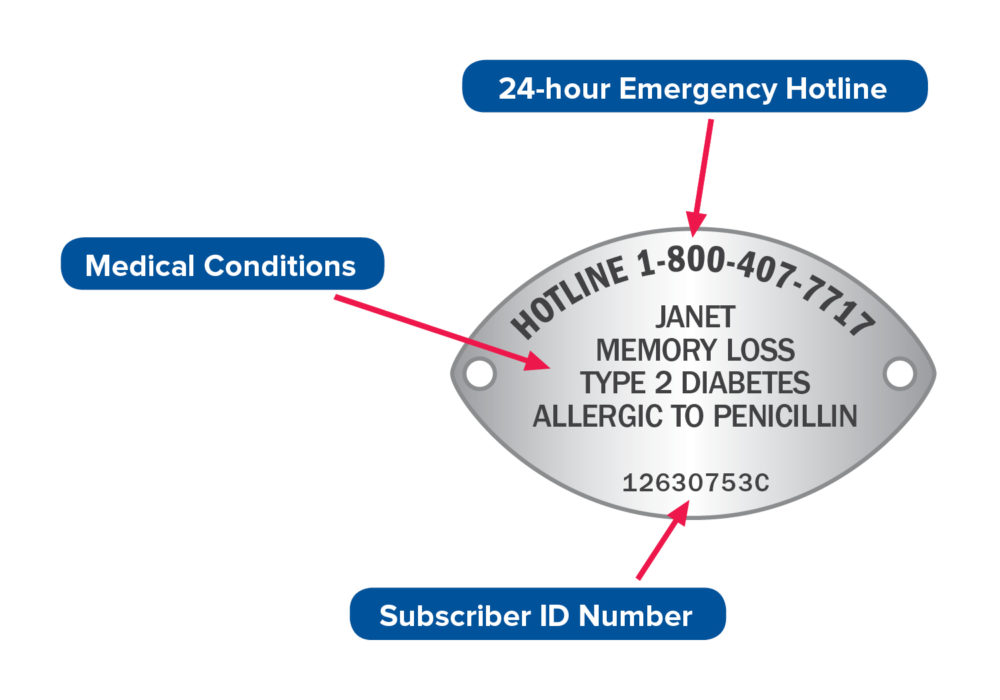
Enhancing safety for people with dementia
Imagine if someone you love goes missing. The worry can be agonizing. When the person has dementia, it takes it up a notch or two.
That’s why MedicAlert Foundation Canada partnered with the Alzheimer Society of Canada in 2013 to help people living with dementia who are at risk of getting lost. MedicAlert’s service—along with its well-recognized engraved bracelet—was launched in 1961 to help emergency responders treat people quickly and effectively when they couldn’t speak for themselves.
The MedicAlert® Safely Home® program is a service specially designed for people with dementia. With over half a million Canadians with dementia right now— a number expected to double in less than 15 years—more and better care is needed. (To learn more about MedicAlert Safely Home, including how to sign up, please visit alzheimer.ca/medicalertsafelyhome.)
a number expected to double in less than 15 years—more and better care is needed. (To learn more about MedicAlert Safely Home, including how to sign up, please visit alzheimer.ca/medicalertsafelyhome.)
MedicAlert’s 24/7 emergency hotline number is engraved on the back of the bracelet. When called, emergency hotline specialists supply police and emergency responders with the person’s photo, physical description, emergency contacts and critical health information. They may also notify caregivers or family to let them know the situation and location of the person. Good Samaritans are often the ones who find the person with dementia and call. Family is contacted directly to help return the person home safely. Often there is no need to involve police.
Why are people with dementia at risk of getting lost?
How often have you heard a story in the news about someone with dementia who has gone missing? We often use the word “wander” to describe how someone with dementia appears to walk around aimlessly. This suggests there is no purpose behind the action. But, that’s not necessarily the case. There may be many reasons why a person with dementia feels a need to walk. For example:
- They might be lost and are trying to find their way home.
- They want to relive an old routine, such as going to work.
- They may be feeling pain or discomfort, or
- They may simply enjoy walking.
However, a person with dementia’s cognitive abilities change over time – communication, reasoning and judgement – so walking safely in the community has its risks. That’s why it takes a community to support a person with dementia to help them walk about as safely as possible. This is often referred to as a “dementia friendly community.”
What can you do to be dementia-friendly?
If you see someone in your community who is alone and appears confused or is dressed inappropriately for the weather, consider these four tips:
- Approach them from the front and ask it you can help.
- Smile! Speak slowly, clearly and use simple words. Tell them your name and why you’ve approached them. For example, “You seem like you are looking for something. Can I help you find it?”
- Give them time to respond. Use gestures or repeat your question if necessary.
- If they don’t respond, ask if you can check their wrist. If you see a MedicAlert Safely Home bracelet, call the MedicAlert emergency hotline number engraved on the back immediately.
Learn more about Alzheimer’s disease and other forms of dementia and find other tips and resources at alzheimer.ca.